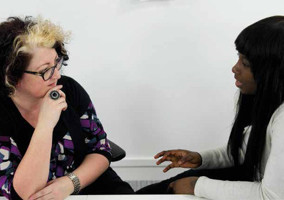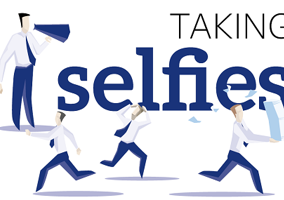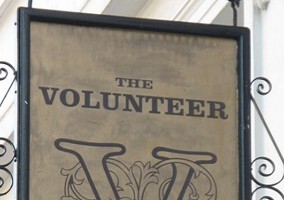In the first in a series of articles, Kate Massarella from Bird – an organisation founded by Hannah Massarella that promotes and facilitates self-care and wellbeing in the charity sector – talks to leading sector figures about why they prioritise self-care in their own organisations.
As the focus on mental health and wellbeing in the workplace grows, prominent not-for-profit directors provide insights into the challenges they face in relation to self-care, wellbeing and staff development.
Attention and discussion around the importance of good mental health and wellbeing in the workplace is growing, particularly in light of reports such as that by the Chartered Institute of Personnel Directors, which show that stress is the leading cause of long-term workplace absence.
Such issues can be heightened in the not-for-profit sector, where employees are often more emotionally engaged with their jobs than in the for-profit sector, yet get less support. As a result, leading not-for-profit directors are developing a wide range of strategies to create workplaces that prioritise staff wellbeing.
As the first in a series of articles developed from a series of interviews with leading not-for-profit directors, this article explores the particular challenges faced by the not-for-profit sector in relation to staff mental health, wellbeing and self-care in the workplace.
An important aspect of wellbeing is self-care, defined by the coaching organisation Bird as establishing and prioritising a routine of self support that promotes better health and wellbeing and leads to more creativity, improved productivity and stronger relationships. Good self-care can improve the ability to cope with the stress that not-for-profit employees often experience.
"Your ability to deal with stress [is like] a bathtub," explains Caron Bradshaw from the Charity Finance Group, "imagine the good things, the things that you enjoy, love, make you relax, fill up your bath tub, whereas stress takes the plug out. If you’ve got more water in your bath you’ve got longer before you run out of reserves… So for me self-care is the things that I can do to make sure the water is as deep as possible."
Not prioritising self-care can have significant consequences, for individuals working in the not-for-profit sector, for beneficiaries, and for the organisation itself. "Self-care is important," explains Lesley Dixon from social support charity PSS.
"It’s all well and good just putting your all into it, burning out, and that’s not good for you as an individual, it’s not good for the organisation, it’s not good for people who use the services."
However, charity directors and managers face a range of unique challenges when it comes to self-care in the work place.
The nature of not-for-profit work
"These aren’t jobs, these are life choices," explains Lina Abirafeh, who worked on gender-based violence prevention and response in emergency settings for the UN.
Whether it’s dealing with bereavement in cancer charities, working with vulnerable refugees, or supporting survivors of sexual violence in humanitarian crises, employees in not-for-profit organisations often face emotionally challenging situations.
"We work with a lot of Syrians who have come over on the government’s resettlement programme", explains Maurice Wren from the Refugee Council, "and their level of traumatisation is higher than we’re used to from other resettled refugees. And that worries me because it means that we’re having to cope with that, we’re having to take that on."
The reliance of many charities on networks of volunteers, part-time employees and people who work remotely also brings up its own self-care and wellbeing challenges. Judi Rhys from Arthritis Care identifies "that sense of isolation… the sense of not quite being connected with the rest of the workforce" as one such issue.
This is further exacerbated by what Maurice Wren describes as a "churn mentality" in the voluntary sector, which leads to feelings of job insecurity.
Despite a strong desire to resolve such issues among not-for-profit leaders, the unpredictable and unreliable nature of funding means that this can often be a challenge. Funding for staff wellbeing and development often competes with the pressure to invest all available resources into supporting beneficiaries, which at the end of the day is what the charities are judged on.
Embedded culture
"Early in my career I was working with someone who I admired very much and had huge respect for," explains Philip Goodwin from VSO. "He had integrity but was also a workaholic. As someone who was young I thought I could work very quickly and you try and emulate that person, and in doing that, I almost drove myself to a nervous breakdown."
This expectation of working extremely hard and a culture of presenteeism in the name of the cause are challenges faced by many in the not-for-profit sector, despite many directors actively trying to change it. In fact, ‘the cause’ is sometimes used as a way of excusing negative behaviours in the work place, such as bullying.
Barriers are also often put up against the discussion of self-care, mental health and the emotional impacts of charity work.
"I genuinely don’t think there is enough talk in our sector about [mental health], particularly at the top," explains Mark Flannagan from Beating Bowel Cancer.
A reluctance to engage with emotions can be identified, with men often feeling like they are not able to speak up and admit they are struggling, and women experiencing accusations of being too emotional and therefore not up to the job. There is an expectation, as Lina Abirafeh describes, for charity and aid workers to "put on a super-hero cape all the time and not show any weakness for fear of being perceived as not up to the job".
This can also be exacerbated by what Mark Flannagan refers to as the "alpha type with the small a", which describes many not-for-profit leaders. Skills such as strong leadership, charisma and drive are highly valued, yet as Flannagan reflects ‘they’re not always skills that allow you to build your resilience, or allow you to be honest".
Finding balance
This dedication to the cause that many not-for-profit employees experience can become detrimental to other work place relationships.
Maurice Wren describes this as "a recognised syndrome where you spend all your empathy on your clients. No empathy left when it comes to the person sitting next to you or your boss or the person you’re line managing". As a result, directors and managers find themselves continuously trying to facilitate a balance between staff supporting themselves, others within the organisation and the beneficiaries.
"We’re focused on what we call primary actors or beneficiaries", explains Philip Goodwin, "and of course we should put them first but unless we act with compassion, respect and valuing others in our working environment, we’re not able to deliver that to our primary actors… it’s a constant sort of loop around".
There is also a need to balance work and home life, ensuring that the challenges of working in a not-for-profit organisation do not have a detrimental affect on relationships outside of the workplace. Self-care is central to this balance – keeping the bath water full so that not-for-profit employees can remain balanced, resilient, and continue to do the jobs that they are so passionate about.
This article is the first in a series developed as a result of in-depth interviews commissioned by Bird and conducted with leaders of not-for-profit organisations on the subjects of self-care, wellbeing and staff development. The articles bring together the key themes shared by these leading practitioners, offering insights into their perceptions and approaches and providing a valuable tool for those wanting to improve wellbeing in the not-for-profit sector.
Kate Massarella is an independent social researcher writing on behalf of Bird: an organisation that promotes and facilitates self-care and wellbeing in the charity sector, founded by Hannah Massarella.
Related articles












